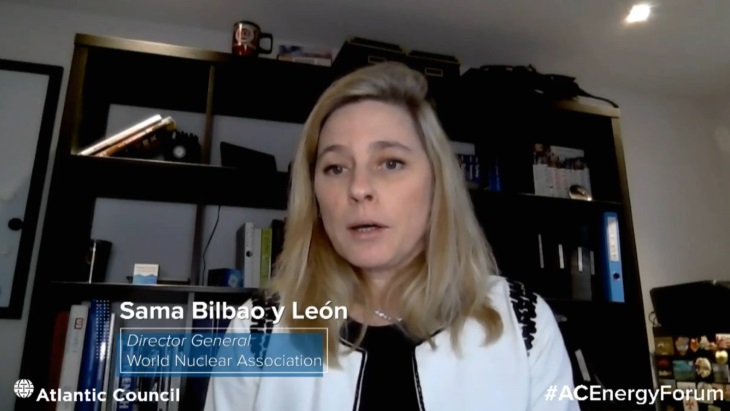"Nuclear energy is currently the most cost-effective way to provide low-carbon dispatchable electricity, that is 24/7 electricity. This is based on the joint report published by the International Energy Agency together with the OECD Nuclear Energy Agency in December 2020. This report shows how the levelised cost of electricity for new nuclear is competitive with all low-carbon energy sources, including renewables.
Of course, nuclear offers interesting deployment flexibility, as depending on the needs of the country, on the current electricity mix, on the current resource endowment, on the growth projections, we can add nuclear energy in large chunks by using a large nuclear power plant, as we have seen in many Western countries. But also, we can add nuclear energy in smaller increments by using small modular reactors. SMRs will be really well suited to countries that have a smaller or perhaps less well developed grid because of their smaller size, which in turn makes them much more affordable.
It is also important to emphasise that, in addition to clean electricity, nuclear energy is the only low-carbon energy source that can also produce low-carbon heat. I can't over-emphasise the importance of this because we are going to need heat to decarbonise very difficult to abate sectors, such as industry and transport. Nuclear heat can be used directly through district heating or indirectly through the production of clean hydrogen, freshwater and so on.
It's important to highlight that beyond the obvious benefits of having access to clean, affordable and reliable electricity, nuclear projects have historically been a proven way to galvanise social cohesion and economic development in many countries, not only due to the project itself but also due to the spill-over socio-economic benefits to society as a whole. This means increased health, a lot of technological innovation and increased access to education and a better quality of life.
One of the main challenges for the deployment of new nuclear, particularly in developing countries, is going to be financing. Like all low-carbon technologies, nuclear energy is very capital intensive, which means that having access to affordable financing is key. First, multilateral development banks and national export credit agencies really need to do more to support developing countries when they choose to move forward with nuclear projects. Access to technology-neutral award criteria that allow the countries to push through with this type of financing are going to be important.
Also, access to private finance is going to be just as important. In addition to the support of multilateral development banks and national export credit agencies, having strong government support is going to be very important in order to instill investor confidence, and to incentivise and to attract public and private investment."







_15863.jpg)





